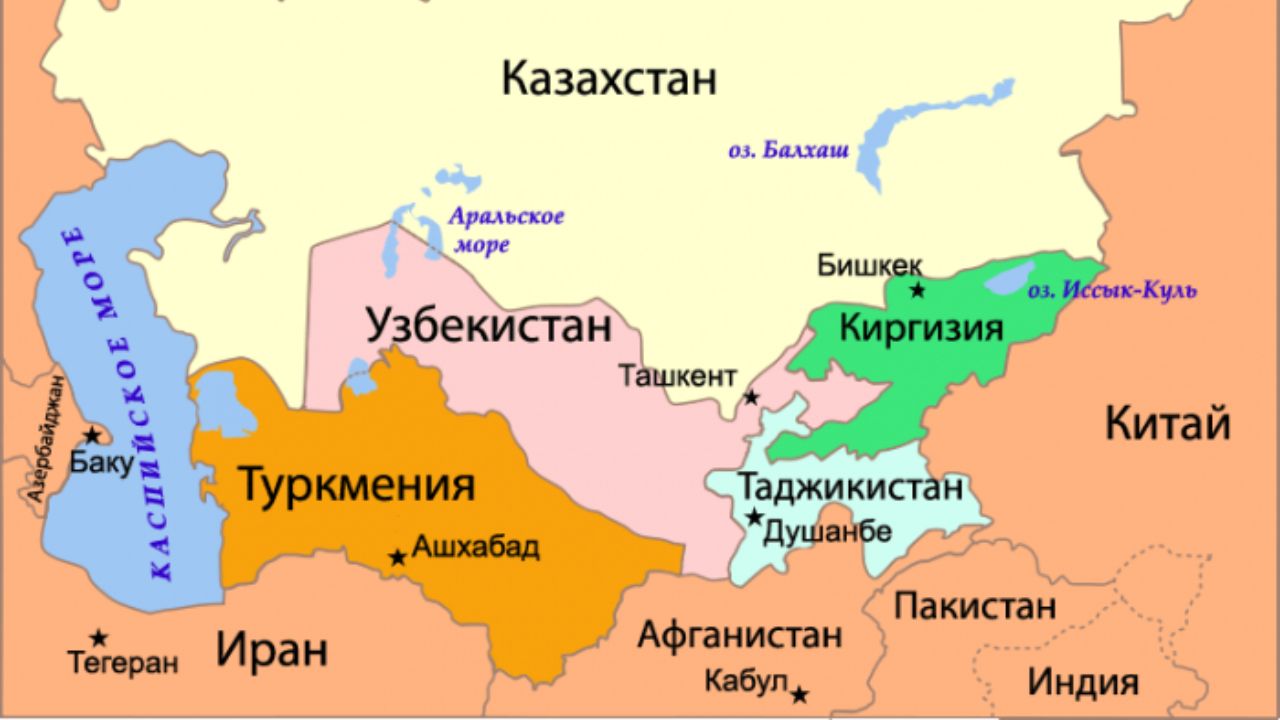
Publication
The Turan wedge is being forced into activation mode

ARVAK Center comment, 12.08.2024(1)
On 08.08.2024 an article of the head of Kazakhstan Kassym-Jomart Tokayev was placed on the website of “Kazakhstanskaya Pravda” resource, with a leitmotiv idea of unification of the Central Asia countries in a new defense system. “In light of the ongoing complexity of the military and political situation along the periphery of Central Asia, there is a clear need for collaboration in the realm of defense policy and security. It is particularly relevant to establish a regional security architecture, including the development of a catalogue of security risks for Central Asia and measures to prevent them”, reads the article by the head of Kazakhstan.
The choice of this article’s publication time coincided with the meeting of the heads of the Central Asian states and Azerbaijan in Kazakhstan’s Astana, which began on the same day – 08.08.2024. As it later became known, almost every leader who delivered a program speech at the round table spoke about the need to join forces to create a reliable “security environment” in Central Asia. Both Uzbekistan’s President Shavkat Mirziyoyev and Kyrgyzstan’s President Sadyr Zhaparov communicated about this. Azerbaijani President Ilham Aliyev also devoted much attention to this issue in his speech. He said that growing threats and challenges in the world require strengthening of cooperation between countries in the sphere of defense and security. I. Aliyev touched upon the issue of training of cadets from Central Asian countries in military educational institutions of Azerbaijan and spoke about the benefits of the international operational-tactical exercises “Unity-2024” («Бiрлестiк-2024») held in Kazakhstan.
Almost at the same time, the Kazakh mass media published a report of the Ministry of Defense of the Republic of Kazakhstan on the efforts already carried out and the plans to further increase the combat power of the Kazakh Army and to provide it with modern equipment. The report contained data on the enforcement of the Kazakhstani army units with hundreds of armored vehicles, artillery systems and other modern means of warfare. The document presented the Kazakhstani army as a strong factor, ready to play an important role in building a new security system in the region.
In this way, the publicity campaign and the informational background of the meeting between the Central Asian and Azerbaijani leaders helped to ensure that the “Astana Meeting” symbolized a qualitatively new level of integration of the Central Asian countries – from cultural and economic rapprochement to political-military alliance. The ARVAC Center has recently mentioned about the signals of such a tendency.
Apparently, now we are talking about the process of materialization of the idea of the radical ideologists of the Turkic world – the “Army of Turan”. The actual implementation of this idea began in the mid-90s of the last century, and at this stage there is a political and legal formalization and legitimization of the project. In the general context of this problem, the Central Asian countries will have to question the effectiveness of the existing security system based on the CSTO. There are no direct messages about this organization’s failure and anachronism yet, but the essence of the discussions in Astana boils down to this.
At the current stage of the process, the absence of Turkey –the core country of the practically announced military-political project, is also reasonable. Obviously, Ankara will remain in the shadows to emphasize the regional, but not ethno-regional nature of the planned new security system. Ankara’s coming to the fore as the leader and locomotive of the project will be realized later, taking into account the course of affairs of Iran in the Middle East and Russia in Ukraine and now, on its own territory (Kursk).
Obviously, the rhetoric of the Turkish leaders about their own new security system is directly related to the events around Iran and Russia. It is impossible not to notice the coincidence that the provocative assassination of the Hamas leader I. Haniyeh and the invasion of the Ukrainian Armed Forces into the Russian Federation took place on the eve of the signing of a strategic cooperation agreement between Tehran and Moscow. The meeting and the statements of the Turkish leaders on the necessity of creating their own security system, which implies the creation of the “Army of Turan”, should be considered as the third component of the global game of the West, aimed at preventing the institutionalization of the Russian–Iranian alliance and the separation of these countries “on their own affairs”. On this basis, it should be understood that the “Turan wedge”, the creation of which has been supervised for decades by the USA and the Great Britain, is being forced into the activation mode, with all the resulting consequences for the IRI and the RF.
(1) The Russian original was posted on our website on 09.08.2024.
